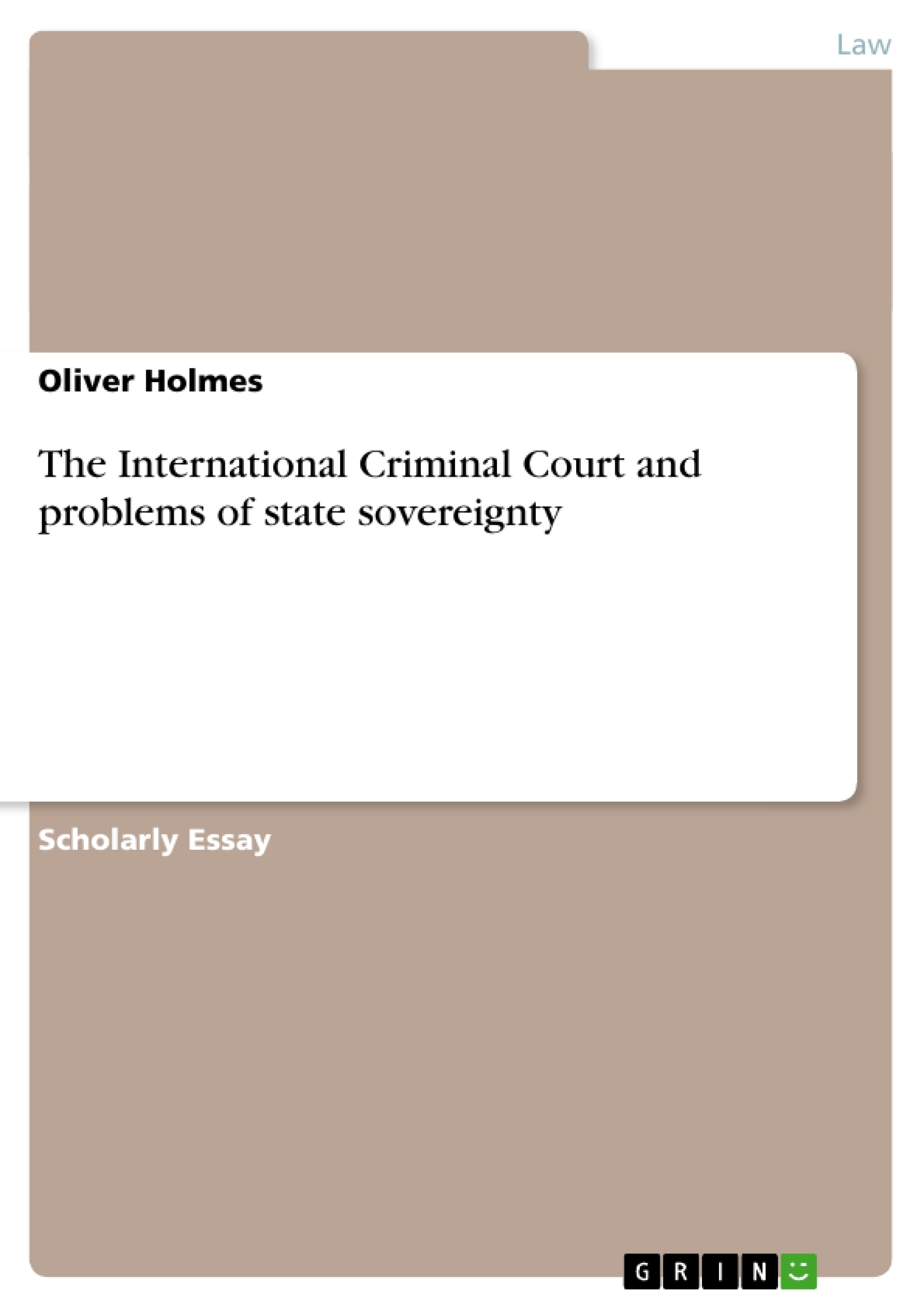It is the argument of this dissertation that the International Criminal Court is an appropriate tool for the enforcement of international criminal law and embodies a shifting notion of state sovereignty. Historically, both multilateral and unilateral attempts to enforce international criminal law have been progressive but not wholly successful. The International Criminal Court is rooted in customary law and addresses the failures of past attempts. The Court’s opposition has illustrated problems of state sovereignty, which in turn exemplifies how the International Criminal Court embodies a shifting notion of state sovereignty. The sources used are the existing academic literature, interviews, international statute, magazines, and newspaper articles.
Inhaltsverzeichnis (Table of Contents)
- I. HYPOTHESIS
- II. INTRODUCTION
- CHAPTER 1: THE PRELUDE TO THE ICC
- 1.1 Legal Principles
- CHAPTER 2: FRUITLESS EFFORTS TO ENFORCE INTERNATIONAL CRIMINAL LAW UNIVERSALLY
- 2.1 Post-War Tribunals
- 2.1.1 Victor's Justice
- 2.1.2 A continuation of Victor's Justice
- 2.2 Pinochet: a unilateral approach
- 2.3 The 'Pinochet Effect'
- 2.1 Post-War Tribunals
- CHAPTER 3: THE PRINCIPLES OF THE ICC AND U.S. OPPOSITION
- 3.1 Complementarity
- 3.2 International Core Crimes
- 3.3 Customary law
- 3.4 A closer look at the law
- 3.5 Conditioned Sovereignty
- CHAPTER 4: THE IMPACT ON SOVEREIGNTY
Zielsetzung und Themenschwerpunkte (Objectives and Key Themes)
This dissertation aims to argue that the International Criminal Court (ICC) is an effective tool for enforcing international criminal law and represents a shift in the concept of state sovereignty. It examines historical attempts to enforce international criminal law, highlighting the ICC’s grounding in customary law and its address to past shortcomings. The dissertation analyzes the ICC’s opposition as a reflection of state sovereignty problems, illustrating how the ICC embodies a changing notion of state sovereignty. Key themes explored in the dissertation include: * The evolution of international criminal law and its enforcement mechanisms. * The ICC’s origins and its role in addressing past failures. * The tension between state sovereignty and the ICC’s mandate. * The impact of the ICC on the concept of state sovereignty. * The debate surrounding the ICC, particularly the US opposition and its arguments.Zusammenfassung der Kapitel (Chapter Summaries)
Chapter 1: The Prelude to the ICC
This chapter lays the foundation by introducing legal principles relevant to the ICC. It sets the stage for understanding the context and rationale behind the ICC’s establishment.Chapter 2: Fruitless Efforts to Enforce International Criminal Law Universally
This chapter examines historical attempts to enforce international criminal law, focusing on post-war tribunals, the Pinochet case, and the "Pinochet Effect." It highlights the limitations and challenges faced by these previous efforts.Chapter 3: The Principles of the ICC and U.S. Opposition
This chapter explores the key principles of the ICC, including complementarity, international core crimes, customary law, and conditioned sovereignty. It examines the US opposition to the ICC and analyzes its arguments against the Court.Chapter 4: The Impact on Sovereignty
This chapter delves into the impact of the ICC on the concept of state sovereignty, examining the perspectives of various authors and their arguments regarding the ICC’s influence on the international system.Schlüsselwörter (Keywords)
The primary keywords and focus topics of this dissertation are: International Criminal Court, International Criminal Law, State Sovereignty, Customary Law, Complementarity, US Opposition, Pinochet Effect, Post-War Tribunals, International Law, Normative Theory, Empirical Evidence, Rome Statute. The dissertation focuses on examining the ICC’s role in enforcing international criminal law, the challenges posed to state sovereignty, and the ongoing debate surrounding its legitimacy and impact.Frequently Asked Questions
What is the primary role of the International Criminal Court (ICC)?
The ICC is a tool for the enforcement of international criminal law, specifically targeting core international crimes.
How does the ICC affect state sovereignty?
The dissertation argues that the ICC represents a shift towards "conditioned sovereignty," where international law can intervene if a state fails to act.
Why does the United States oppose the ICC?
U.S. opposition is largely based on concerns regarding national sovereignty and the potential for politically motivated prosecutions of its citizens.
What is the "principle of complementarity"?
Complementarity means the ICC only investigates and prosecutes if national legal systems are unwilling or unable to do so genuinely.
What was the "Pinochet Effect"?
It refers to the precedent set by the legal proceedings against Augusto Pinochet, which influenced the universal enforcement of international criminal law.
- Citation du texte
- Oliver Holmes (Auteur), 2008, The International Criminal Court and problems of state sovereignty, Munich, GRIN Verlag, https://www.grin.com/document/139744



